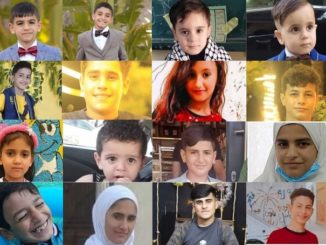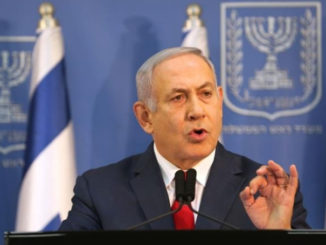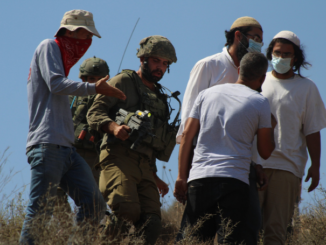
April 13, 2019
Amman. 6 am. 1, 000 m above Sea Level.
You queue for a bus that is going to Jerusalem. No one says Palestine or Israel. Jerusalem becomes an umbrella term for all that exists beyond Allenby Bridge, also known to Jordanians as the King Hussein Bridge. Palestinians refer to it by what they yearn for, Al Karameh Bridge, The Bridge of Dignity, which refers to the 1968 battle between the Israel Defense Forces (IDF) and combined forces of the Palestine Liberation Organization (PLO) and the Jordanian Armed Forces (JAF) in the Jordanian town of Karameh.
To each is their own cultural and historical reference to either defeat or triumph. We stepped ashore on The Banks and headed towards the land of Canaan. Cars were queuing in tens. The heat of the glowing sun blazed through the glass and you could smell its burning. The Jordan Valley, the Ghor, is part of the larger Jordan Rift Valley, one of the hottest places in the Middle East, a key agricultural area, and stretches from northern Lake Tiberius to the Dead Sea in the south; and from the latter to Aqapa, or Wadi Arabah.
To cross from Jordan to the West Bank, an Israeli visa is required. You did not actually cross or see a bridge. The terminal is a border-crossing between the West Bank of Palestine and Jordan; yet, it is governed and run by Israeli authorities. A two-meter-wide gate is the only way out and exit for Palestinians living in the West Bank since Palestinians are not allowed to use Israel’s airport in Tel Aviv, Ben Gurion Airport.
Ben Gurion was named after David Ben-Gurion the primary national founder of the State of Israel and the first Prime Minister of Israel; whereas Allenby Bridge was named after field marshal Edmund Allenby, a British Imperial Governor who fought in the First World War, in which he led the British Empire‘s Egyptian Expeditionary Force (EEF) during the Sinai and Palestine Campaign against the Ottoman Empire in the conquest of Palestine.
Between Allenby and Ben Gurion, Palestinians have no exit outside of the colonial whale but The Bridge: the whale’s throat. A blue whale’s throat is the size of a side plate. And the biggest thing it can swallow is probably a melon. Blue whales also eat nothing for eight months of the year. However, during summer they eat up three tons a day.
The terminal was busiest during summer times, too. The bus drove out of Jordan, turning our backs to Syria, westwards by the Yarmouk/Jordan River, past Lake Tiberius/the Sea of Galilee, through the Jordan Rift Valley down to the Allenby Border.
Jericho. 11: 15 am. 400 m below Sea Level.
The Jordanian border security officer registers your name and details and searches you to ensure the security of the Israeli border. The Israeli security officer registers and validates your crossing with a 3-month-visit-visa.
The Israeli officer asks me to open my WhatsApp application and copies my number. The Palestinian security officer revises your papers and registers your details. You exchange Jordanian Dinars for Israeli Shekels to pay for Palestinian water. Other tourists are in VIP air-conditioned vehicles.
Surrounding bare mountains welcome you with naked chests. Your mobile phone network automatically shuttles from Jordanian Zain, to Israeli Cellcom, to Palestinian Jawwal during a time-span of 20 minutes. Climate changes correspondingly.
Ramallah. 2 pm. 880 m above Sea Level, Again.
You stop by a falafel shop to eat, and graffiti next to you reads “We are hungry for freedom”.
Graffiti in Ramallah eats you alive and spits you raw. You pause for a second to cross the zebra lines over a street, and Mahmoud Darwish shouts at you from every wall of the city. You sit in a Café and Marcel Khalife bitters any sweetness of your tea.
The antiquity of toilet walls in old houses turned into local pubs and cafes in Ramallah reminds you that an abstract memory can turn into a slap. And your cheeks burn as a result. You go for a drive and your playlist is disrupted by Israeli adverts. Everything in Ramallah is political. Even love. Especially love.
And that is why everything in Ramallah turns into a poem; turns you into a poem. Everything is poetry in Ramallah, in which you are the reader and the writer and the editor and the words. Ramallah turns you into language punctuated by jasmine colors, popcorn with thyme, burning, burnings; there is always something burning in Ramallah: ash, hash, burnt rubber, anguish.
Burnings are punctuated by orange shuttles, the sound of shootings at Fatah’s headquarters, females in thousand shades of grace, eucalyptus trees, trees, oak trees, trees, trees, and bonfires in schoolyards. Names and pronouns in Ramallah reflect no subjects, but deferrals to an eternity of carpets of alphabets.
Ramallah then becomes a threshold to becoming. Everything in Ramallah tastes like the bittersweetness of its locally-brewed beer, Shepherd. The word semantically connotes guidance, direction, and leadership – all that lacks in Ramallah.
You go back but you do not return. You arrive but you are not here. The physicality of memory weighs larger than time. And you are no longer the traveler, but the borders you cross.
– Akram Al Deek is Assistant Professor of Post-colonial Literature at the American University of Madaba (AUM), Jordan. He is the author of Writing Displacement, published by Palgrave Macmillan, and Eucalyptus Obliqua, published by Ward Publishers. He is a contributory columnist at Jordan Times. He contributed this article to The Palestine Chronicle.







